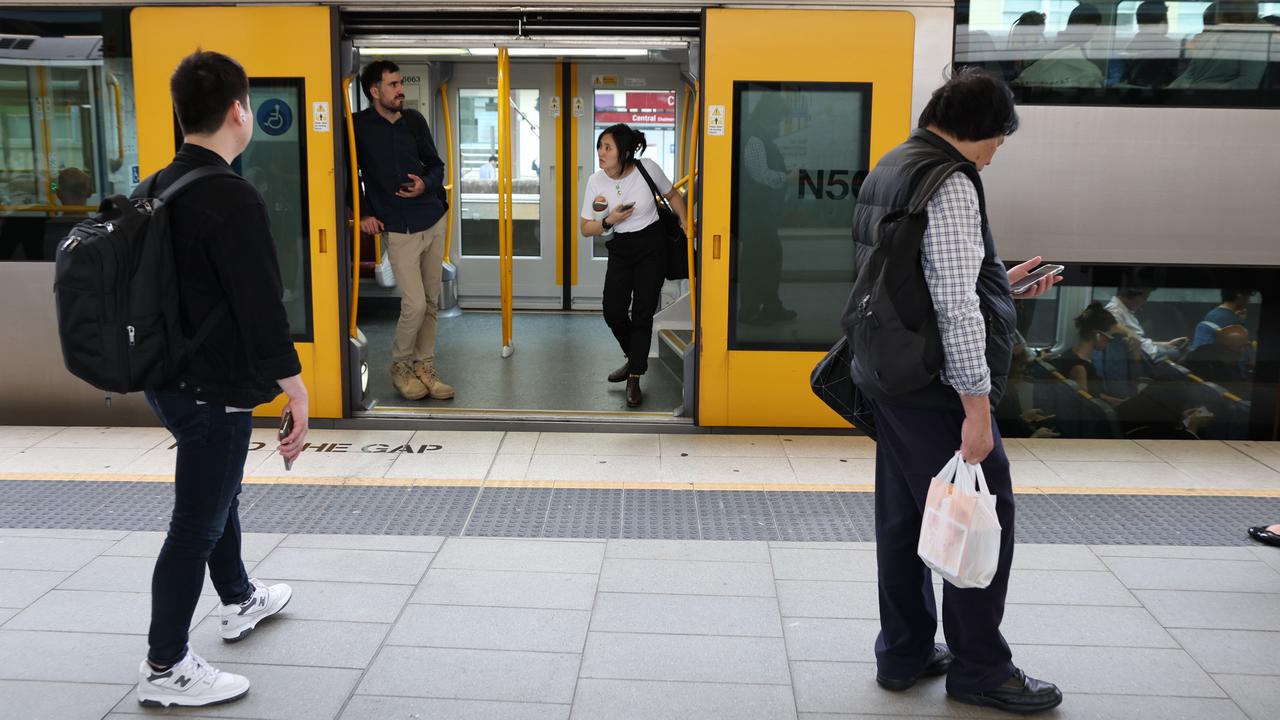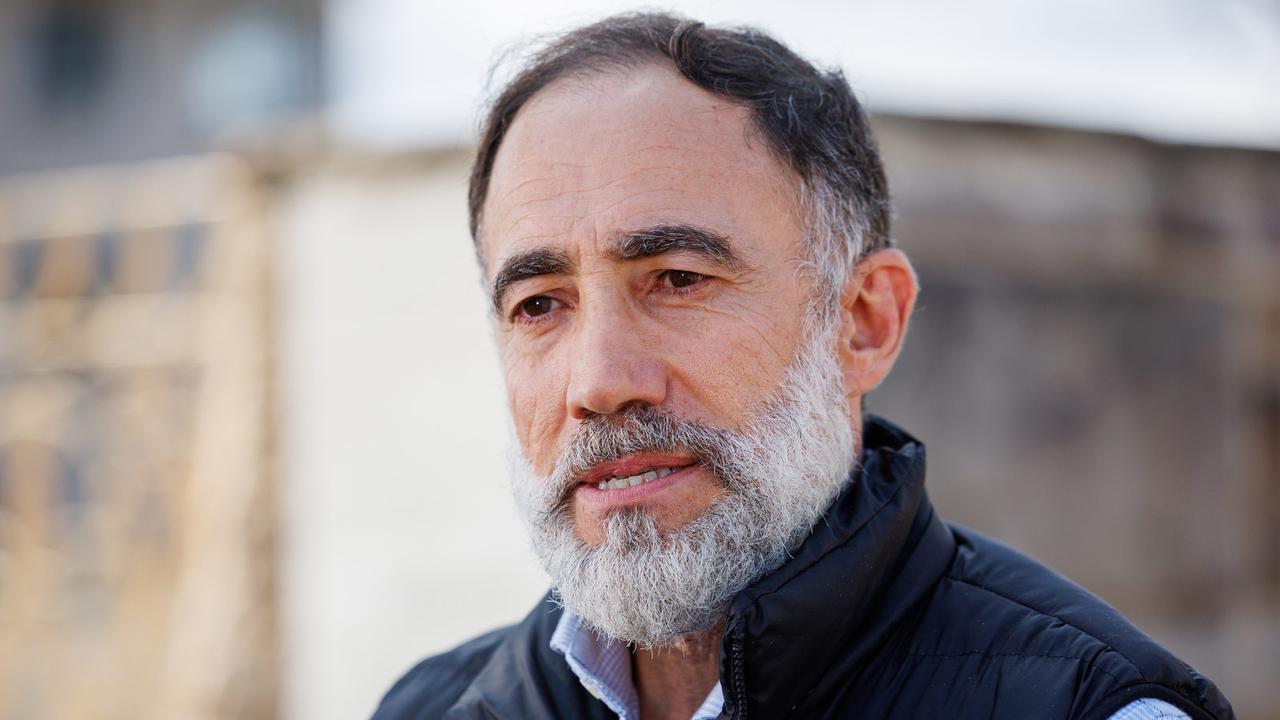COVID-19: Berala cluster slips the net with two new infections
It took NSW Health a second interview to finally connect an infected man and woman to the Berala cluster — but not before they had visited a number of venues.
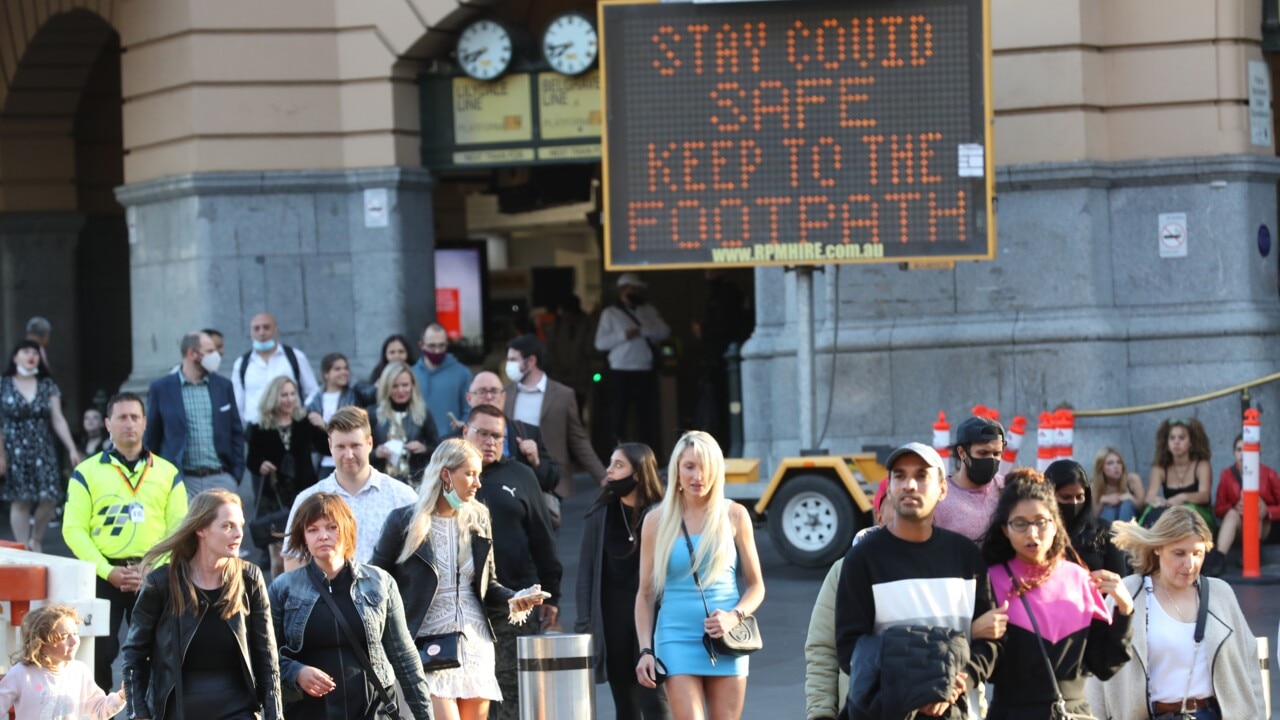
NSW
Don't miss out on the headlines from NSW. Followed categories will be added to My News.
A couple who tested positive for COVID visited several venues while infectious before they were identified as a “close contact” of a previously confirmed COVID case.
The man and woman — in their 30s — were two of the state’s three new local cases reported on Sunday.
The infections were connected to the Berala cluster, but NSW Health only linked the couple to a positive case after a second interview.
“People do their best in giving us a history of who attended their house or who they had contact with, but there are always times where that fails,” chief health officer Dr Kerry Chant said.
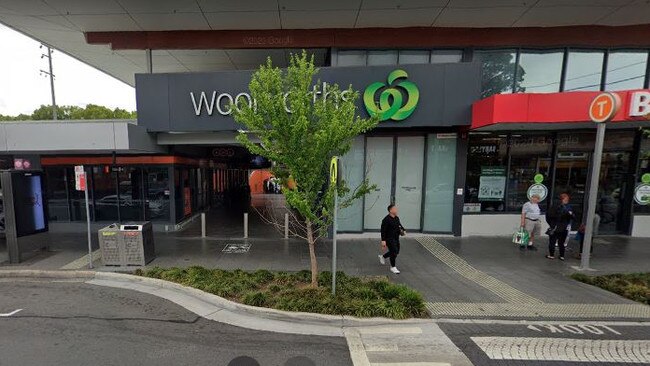
“We do occasionally find people have been missed because people forget to tell us.”
The new cases sparked health alerts for a range of venues in Campsie, Casula and Bankstown between January 2 and 8. A number of public transport routes were also identified.
A third case was recorded on Sunday in a young man in the southern end of the northern beaches who was a close contact of a previous case linked to the Avalon outbreak.
Premier Gladys Berejiklian said authorities were “mopping up” the “remnants” of COVID-19 still in the community following outbreaks in the northern beaches and Berala, with high testing rates over the next two weeks seen as crucial.
Sunday’s cases were detected in 23,763 tests.
“For the next 14 days it is critical that we mop up any unrecognised chains of transmission,” Dr Chant said.
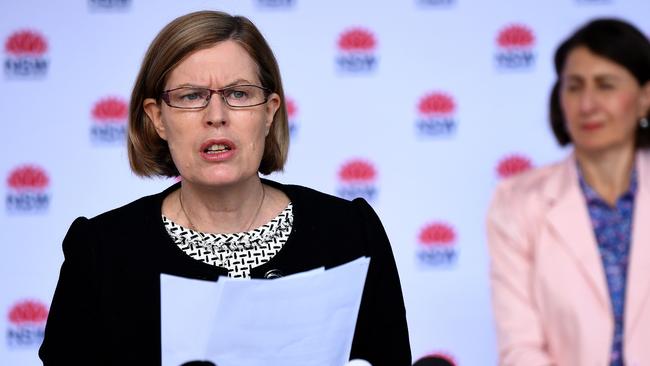
With minimal community transmission across the state, senior ministers are now looking at whether certain restrictions can be eased.
Treasurer Dominic Perrottet wants to return “as quickly as possible” to the rules that were in place before the Avalon outbreak.
“We need to get back as quickly as possible to the steady state we were in during December,” Mr Perrottet told The Daily Telegraph.
“That is operating on the one person per two square metres (rule) and having all elements of society functioning as freely as possible.”
Professor Kelly said.
VACCINE ROLLOUT WON’T WIND BACK RESTRICTIONS
The COVID-19 vaccine rollout will not signal the end of restrictions with it likely to be months before Australia gets to see what a new normal looks like, the nation’s leading medical officer has warned.
Chief medical officer Paul Kelly said on Sunday it would likely to be the second half of the year before federal and state governments started to ease health and border restrictions.
However, persistent messaging about social distancing, coughing into your elbow, washing your hands, and home if you’re unwell will remain in place, he said.
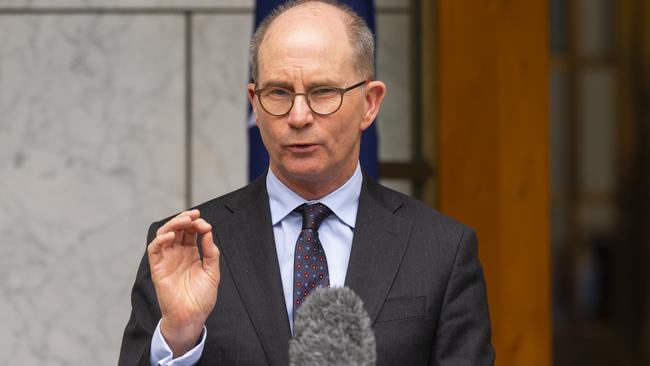
“Every single person that gets their two doses of vaccine and gets that very strong protection against severe illness, will give people more confidence.
“It will give the public health system more confidence, will give our politicians — that need to make these decisions in the end — more confidence, about what a COVID-safe normal might look like in the second half of this year.”
Australia’s coronavirus vaccine rollout will begin next month.
First in line to be inoculated will be workers who have the highest exposure to COVID-19 including those working in hotel quarantine, transporting international arrivals, and health professionals.
“First priority is those that are at higher risk of exposure to the virus,” Professor Kelly said.
“That is the people that are working at our borders; the people working at our quarantine hotels; the nurses and other health professionals that are working in those settings; the cleaners; the transport workers that are transporting people to our quarantine hotels.
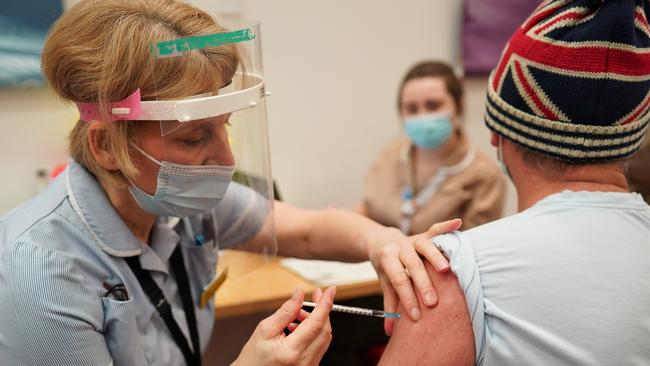
“They are the ones that are at highest risk of exposure so we need to get that vaccination out to them quickly.
“Same with our healthcare workers that are working at our hospitals and other frontline areas.”
He said Australia was fortunate when it came to the impacts of coronavirus — with more than 89 million cases worldwide that caused more than almost two million deaths.
There has not been a death of someone acutely sick with COVID-19 since October and there are just 41 people in hospital, he said.
“In the last 24 hours, we’ve had 13 cases — three of those, all in NSW, are locally acquired,” Professor Kelly said.
GLADYS ISSUES BORDER PLEA TO PREMIERS
NSW Premier Gladys Berejiklian has pleaded with her fellow state premiers to think carefully before they shut their borders as the state recorded three new cases.
“I would simply say to other state leaders — firstly, please talk to us in NSW before you close the border because we can explain to you the situation that’s going on,” she said.
“Sometimes when there is an unexpected breakout, you do have to see where it goes for the 24 or 48 hours before you make a decision like closing a border.
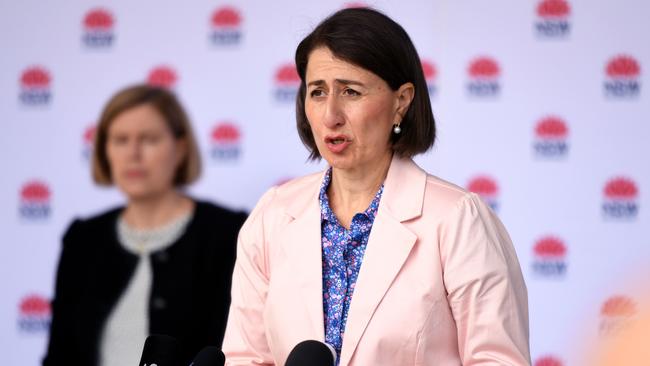
“Closing a border can affect literally tens and hundreds of thousands of people, and that’s a big call. And in NSW, our strategy is to try to minimise unnecessary stress on our citizens while obviously keeping the virus at bay.
“It’s a difficult balance. But I just ask other state leaders to, please, talk to us before they close their border to NSW and give us a chance to demonstrate our capacity to get on top of the virus without adversely impacting our citizens”.
NSW recorded three new cases of community transmission from nearly 24,000 tests on Sunday.
Two were close contacts in the Berala cluster and one was a close contact of someone from the Northern Beaches.
Victoria recorded four consecutive days without local transmission, with another bumper day of testing on Saturday.
But six returned travellers have been diagnosed with the virus.
Queensland again recorded no new cases of COVID-19 but the Premier and Chief Health Officer refused to say if lockdown will be lifted tomorrow.
SECURITY ISSUES IN ISOLATION STAYS
The figures come amid revelations private security guards without any masks or personal protective equipment are guarding returned travellers in Sydney’s quarantine hotels, leading to fears of a Victorian-style outbreak of the more contagious version of COVID-19.
One mother who is currently quarantining at a Sydney hotel with her husband and two children after returning from New York last Sunday, said the family was shocked by the lack of personal protective equipment for staff, with the security guard outside her door not wearing a face mask. She has asked to remain anonymous but provided pictures.
She has asked to remain anonymous but provided pictures.
“We’ve started taking photos of the security guards on our floor that are unmasked and within a metre or so of our door,” she told The Sunday Telegraph.
The woman and her family are returning to Melbourne and are aware of the security breaches in Victoria that led to the massive second wave. Although NSW hotels are under police control, private security is still being used.
“I can’t get our head around it … if you are being asked to work as a security guard in a quarantine hotel I’d be asking for the full PPE. I’d want a proper N95 mask. My husband said something to him and he said: ‘I’m socially distanced’ and we called the hotel downstairs and they said we don’t hire them.
“The people who deliver our food have proper masks and gloves on, but not that guy sitting outside my door is in an enclosed environment with no fresh air. We are all potentially sitting here with COVID and he’s like a sitting duck with no mask on. It’s astonishing because it only takes one weak link.
CALL FOR RETHINK OF HOTEL QUARANTINES
Health experts are now calling for a rethink on the current hotel quarantine protocol because continual breaches from staff will lead to regular COVID outbreaks and rolling lockdowns like the Northern Beaches and Berala clusters.
With close to 5000 returned travellers currently quarantining in 17 hotels in central Sydney, Professor Raina MacIntyre, head of the Biosecurity Program at the Kirby Institute, said it is only a matter of time before more contagious mutations of the virus escape into the city.
“So when people return from overseas, the chance of it coming back is higher, so the risk of breach is also higher, so we will continue to see breaches.
“The next one could be one of these mutant strains, which is much more difficult to control.”
Already a casual cleaner at a Brisbane hotel quarantine site has been infected with the United Kingdom‘s more contagious strain of COVID-19 and the strain has been identified in six returned travellers in NSW as of Friday.
The reproductive number for both the more contagious mutant strains in the UK and South Africa is thought to be four to six, meaning for every person who has the virus, they will pass it on to between four to six people — double that of the original strain.
The current protections for quarantine workers and hotel choices are a significant risk, Prof MacIntyre said.
“It’s clear from the scientific evidence that this is the main mode of transmission of the virus, so to deny airborne transmission, you don’t pick you hotels on how good their ventilation is, you don’t ask people to keep their windows open when transporting and you don’t tell people to wear a respirator to protect themselves breathing in contaminated air,” she said.
The driver who was infected by transporting positive travellers had led to 21 infections known as the Berala cluster.
“The van driver who got infected was wearing only a surgical mask. Ventilation hasn’t been addressed, corridors in hotels are notorious for accumulating aerosols and being dangerous from point of view of spread. Hotel quarantine staff are not aware and are not given proper protection and they are there without masks at all, it’s terrible,” Prof MacIntyre said.
Tara Tubman was in quarantine from November 30 until December 14 after returning from Hong Kong.
She had a suspected broken ankle in Hong Kong but worried she would not be able to board her flight after three prior cancellations. In Sydney, while quarantining at the Four Point Sheraton, she sought medical attention and was taken to Royal Prince Alfred Hospital.
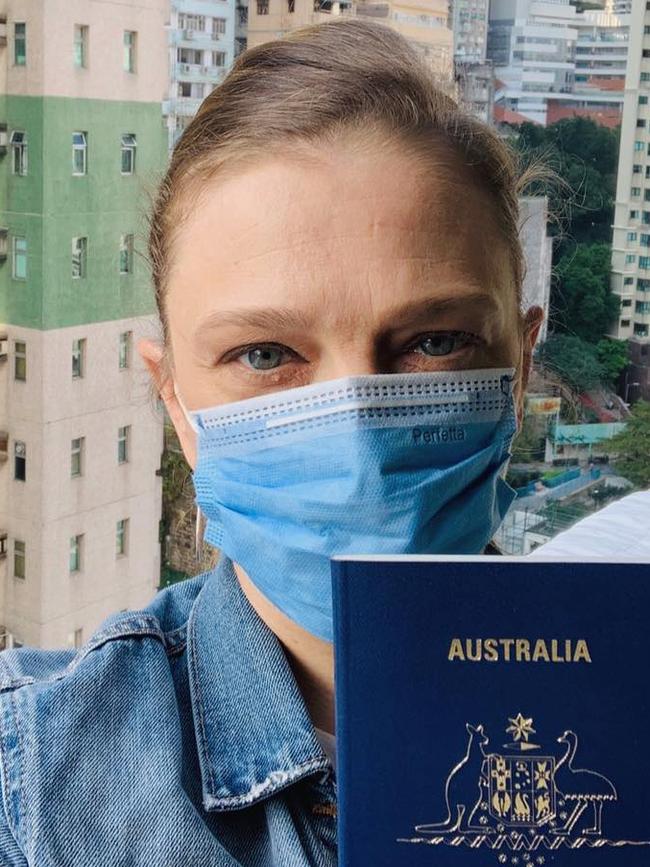
“A nurse and police sergeant collected me from my room. When I opened the door (I already had a mask on) the officer was in mask, nurse was in full PPE. As I walked out the door they yelled at me to stop, not touch anything and to wait and they asked the security guard on my floor to take two steps back and he was not wearing a mask,” Ms Tubman said.
“They knew I was leaving at that time, they knew I hadn‘t been tested at that time. I was so shocked I yelled at the officer where was this guy’s mask and he said he didn’t have to wear one, and I stated that that was ridiculous, and they essentially shrugged it off and laughed at me like I was a lunatic.
“The guards should be provided PPE by their employers. I respect and admire all the staff that are working in the quarantine hotels. And I think the security guards are being done an injustice, they need to be educated and mandated to wear masks at all times.”
NSW Police said in a statement: “Private security deployment at police-managed quarantine hotels is co-ordinated and managed in accordance with existing government arrangements.
“Personnel involved in the operation wear personal protective equipment (PPE) in accordance with NSW Health guidelines.”
But the NSW Clinical Excellence Commission guidelines state “you do not need to wear PPE when sitting or walking around the floor”.
Lucy Morell, who is in Japan and repatriating back to Sydney in April said she would prefer to quarantine in speciality facilities like that of Howard Springs in the Northern Territory.
“I’m most concerned that the Prime Minister abrogating to the states on biosecurity has led to unprofessional and non-clinical quarantine and also the impossible flight caps,” she said.
“I think the states are doing their best on a mercy mission to repatriate us, but I’d rather go where the dogs and cats go if I can’t quarantine at Howard Springs, Christmas Island, or even Woomera.”
There are 506 people in the Special Health Accommodation with symptoms. A total of 2173 people spent time in the Special Health Accommodation in November and December. 191 of these have been from the UK.
There have been no locally acquired cases of COVID-19 with the UK variant strain detected in NSW, a NSW Health spokeswoman said.
Originally published as COVID-19: Berala cluster slips the net with two new infections

